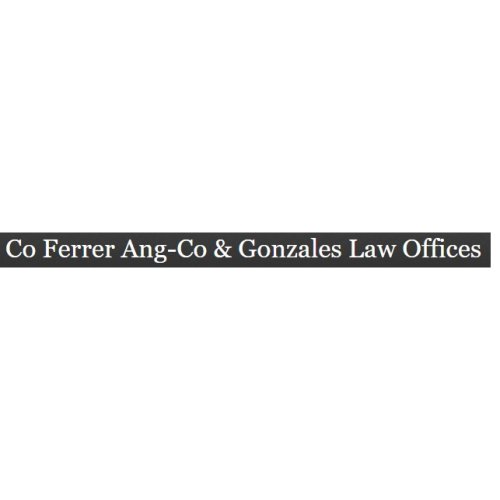Best Art & Cultural Property Law Lawyers in San Juan
Share your needs with us, get contacted by law firms.
Free. Takes 2 min.
List of the best lawyers in San Juan, Philippines
About Art & Cultural Property Law in San Juan, Philippines
Art & Cultural Property Law in San Juan, Philippines, is a specialized area of law that deals with the rights, protection, and transactions involving cultural property and art. This field encompasses aspects like intellectual property, import and export controls, and the preservation of cultural heritage. The laws are designed to ensure that cultural artifacts and artworks are protected, accurately represented, and legally managed, reflecting the rich cultural tapestry of the Philippines. Particularly in San Juan, a city known for its deep cultural roots and artistic expressions, these laws play a crucial role in supporting local heritage while encouraging artistic enterprises.
Why You May Need a Lawyer
There are several situations where individuals or entities might require legal assistance in the realm of Art & Cultural Property Law:
- Art Ownership Disputes: Complexities can arise over the ownership and provenance of artworks.
- Cultural Heritage Preservation: Legal issues might occur involving heritage sites or artifacts.
- Intellectual Property Rights: Artists and creators need protection for their works to avoid misuse or unauthorized reproductions.
- Import and Export Issues: Navigating the regulations for transferring cultural property across borders.
- Art Brokerage and Sales: Legal guidance for art transactions to ensure compliance and fair dealings.
- Art Restitution and Repatriation: Handling legal cases regarding the return of cultural property to rightful owners or countries.
Local Laws Overview
In San Juan, as well as the broader legal framework of the Philippines, several key legal components govern Art & Cultural Property Law:
- Republic Act No. 10066: The National Cultural Heritage Act of 2009, provides protection and conservation of properties significant to Philippine culture.
- Intellectual Property Code of the Philippines: Governs the protection of copyrights, patents, and trademarks for artists and creators.
- Historic and Archeological Sites: Specific regulations protect sites of historical and archeological importance, requiring due diligence and compliance by property developers.
Frequently Asked Questions
What is art and cultural property law?
It is a legal field that addresses the issues surrounding ownership, protection, and distribution of artworks and cultural artifacts.
Do I need a license to export art from the Philippines?
Yes, it often requires authorization from relevant cultural agencies, especially for items considered cultural property.
How can I verify the authenticity of an artwork?
Contact a certified art appraiser or consult an art lawyer to trace provenance and verify authenticity legally.
What is heritage law?
It's a subset of cultural property law focused on preserving and protecting sites, artifacts, and expressions important to national heritage.
How can I protect my rights as an artist?
Register your works with the Intellectual Property Office to secure copyright protection and seek legal advice for contracts.
What should I do if I discover an artifact on my property?
Report it to the National Commission for Culture and the Arts as it may be subject to national heritage laws.
Can I legally reproduce a famous artwork?
Only if it falls within public domain laws or you have obtained permission from the rights holder.
What are the penalties for violating cultural property laws?
Penalties may include fines, imprisonment, and confiscation of the cultural items involved in the violation.
How can disputes over art ownership be resolved?
Through negotiation, mediation, or legal proceedings, depending on the circumstances and parties’ cooperation.
Who oversees the enforcement of cultural property laws in San Juan?
The enforcement is primarily managed by the National Commission for Culture and the Arts and local regulatory bodies.
Additional Resources
For further assistance, you may contact:
- National Commission for Culture and the Arts (NCCA): The lead agency in heritage matters.
- Intellectual Property Office of the Philippines (IPOPHL): For matters regarding copyright and intellectual property protection.
- Local Art Galleries and Museums: Often have resources or directories for recommended legal practitioners specialized in this area.
Next Steps
If you require legal assistance in Art & Cultural Property Law in San Juan, Philippines, the following steps are recommended:
- Consult with an attorney specializing in Art & Cultural Property Law to discuss your situation and understand your rights and obligations.
- Gather all necessary documentation related to your case, including any ownership certificates, provenance records, or legal notices.
- Contact the appropriate government bodies if your issue involves public interests or cultural heritage aspects.
- Explore alternative dispute resolution methods if involved in a dispute, as these can often be more effective and less costly than court proceedings.
Lawzana helps you find the best lawyers and law firms in San Juan through a curated and pre-screened list of qualified legal professionals. Our platform offers rankings and detailed profiles of attorneys and law firms, allowing you to compare based on practice areas, including Art & Cultural Property Law, experience, and client feedback.
Each profile includes a description of the firm's areas of practice, client reviews, team members and partners, year of establishment, spoken languages, office locations, contact information, social media presence, and any published articles or resources. Most firms on our platform speak English and are experienced in both local and international legal matters.
Get a quote from top-rated law firms in San Juan, Philippines — quickly, securely, and without unnecessary hassle.
Disclaimer:
The information provided on this page is for general informational purposes only and does not constitute legal advice. While we strive to ensure the accuracy and relevance of the content, legal information may change over time, and interpretations of the law can vary. You should always consult with a qualified legal professional for advice specific to your situation.
We disclaim all liability for actions taken or not taken based on the content of this page. If you believe any information is incorrect or outdated, please contact us, and we will review and update it where appropriate.









